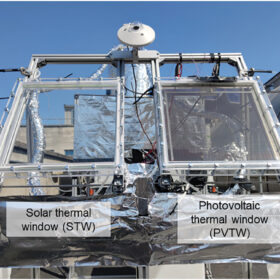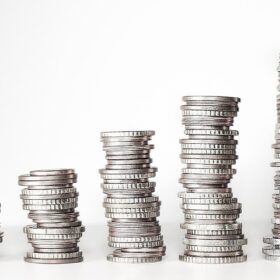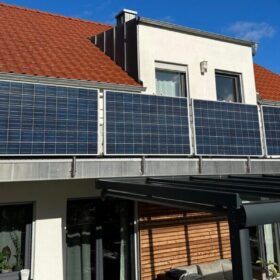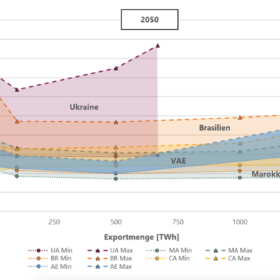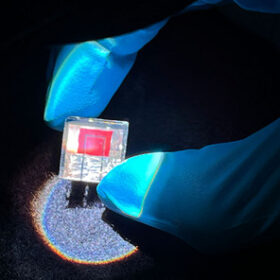Photovoltaic-thermal window achieves 3.6% electrical efficiency, provides hot water at 50 C
Scientists have developed a window that uses a semi-transparent amorphous silicon PV layer. The group tested the system in London at different inclination angles and found it can achieve a maximum electrical efficiency of 3.6% and a maximum thermal efficiency of 17.6%.
The Hydrogen Stream: US government, ABI Research predict lower H2 costs
The US government says electrolysis could reduce clean-hydrogen production costs to $1/kg by 2031, while ABI Research claims the global levelized cost of hydrogen (LCOH) will become cost-competitive by the end of this decade, dropping to $2.50/kg.
Germany’s Solarmax facing bankruptcy
Residential PV storage systems and inverters provider Solarmax is provisionally filing for bankruptcy in Germany but will continue to operate.
German startup offers refurbished solar modules in balcony PV systems
Germany’s Panelretter is now offering German customers plug-in solar devices that use refurbished second-life solar modules. There are three different models with output ranging from 400 W to 810 W. The prices for the complete sets start at €220 ($232).
Global hydrogen atlas shows potential import countries for Germany
Researchers from the Fraunhofer Institute for Solar Energy Systems have analyzed the techno-economic potential of importing hydrogen to Germany from Brazil, Morocco, Canada, Ukraine and the United Arab Emirates.
Germany concludes rooftop PV tender with average price of €0.0904/kWh
The German authorities have selected 119 MW projects totaling 259 MW in the nation’s latest rooftop PV tender. The final prices ranged from €0.0745 ($0.0787)/kWh to €0.0969/kWh.
Researchers claim record-breaking 25.7% efficency for perovskite-organic tandem solar cell
Conceived by a research team from Germany’s University of Potsdam and the Chinese Academy of Sciences, the tandem cell is based on a wide-bandgap perovskite bottom cell and a narrow-bandgap organic top device. The researchers used a compound known as cyclohexane 1,4-diammonium diiodide for suface passivation.
TotalEnergies to acquire Germany’s VSB Group
France’s TotalEnergies is set to buy German renewables company VSB Group for €1.57 billion ($1.65 billion). It has also agreed to sell 50% of a 2 GW solar-plus-storage portfolio in Texas for $800 million.
Germany could deploy 10 million heat pumps by 2030
Scientists have used open-source models to simulate heat pump rollout scenarios for the year 2030. Additional investments of around 54 GW to 57 GW of solar PV capacity in a least-cost solution would allow the installation of 10 million heat pumps by the end of the decade.
BMW plans center in Germany to pioneer new battery recycling method
BMW Group’s battery recycling method involves raw materials from battery cells being fed back “directly” into the cell production cycle, creating a closed loop method.
